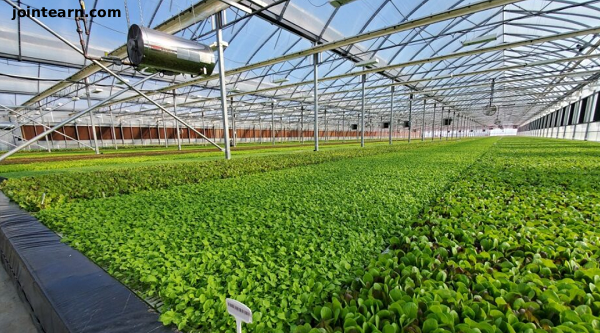
Agricultural experts have reaffirmed the importance of mechanised farming as a catalyst for increased food production, economic growth, and large-scale job creation across Africa.
They made the call during the presentation of How Africa Eats, a new book authored by Professor David Luke of the London School of Economics and Professor Olawale Ogunkola of the University of Ibadan.
Mechanisation Creates Jobs, Not Job Losses
Speaking at the event, Prof. Ogunkola stressed that mechanisation should not be viewed as a threat to employment. Rather, it opens new opportunities for skilled labour in equipment operation, maintenance, and repairs.
“Mechanisation reduces manual labour but does not eliminate jobs. Instead, it creates demand for new technical skills and supports diversification, especially in rural areas,” he said.
Using Nigeria as an example, he noted that while policies may be well-designed, poor implementation remains the major obstacle, despite institutions like the Bank of Industry (BOI) and Bank of Agriculture (BOA).
“Farmers are not asking for money. They want basic challenges resolved—rural infrastructure, transportation, and support in times of crisis,” he added.
Africa Not Meeting Agricultural Investment Targets
Co-author Prof. Luke criticised African governments for failing to meet the African Union’s CAADP commitment of allocating at least 10% of national budgets to agriculture.
He said the region’s land tenure system and high bank lending rates have further hindered agricultural financing, with communal land ownership preventing farmers from using land as collateral.
“Only a few African countries have met the CAADP targets. Private investment remains very low, and microcredit schemes cannot support production at scale,” he said.
Luke also blamed heavy subsidies in Western countries for pricing African farmers out of global markets.
Climate Change Intensifying Food Crisis
The study highlights the increasing impact of climate change, including floods, droughts, and locust invasions, on African food systems.
Luke noted that although innovative solutions—such as improved irrigation, soil enhancement techniques, and climate-resilient seeds—are emerging, they lack adequate financial backing.
Finance, Policy Reform Remain Critical
The authors identified access to finance as the most urgent priority for ending hunger on the continent.
“Africa is not poor in land or people. What we lack is a financial system that supports agriculture. We must mobilise banks, pension funds, and other domestic resources,” Luke said.
He cited Kenya’s specialised agricultural banks as an example of how targeted financial institutions can support food production.
Value Addition Is Key
The book argues that Africa’s heavy dependence on exporting raw commodities rather than adding value locally has kept incomes low and limited nutrition outcomes.
Prof. Ogunkola and Prof. Luke insist that shifting to value-added agriculture could unlock massive economic gains and reduce poverty.
Research Aims to Spur Action
Lennart Oestergaard, Resident Representative of Friedrich-Ebert-Stiftung (FES) Nigeria, a partner in the research dissemination, said the study underscores how Africa’s food insecurity is worsened by its export-driven commodity model.
He added that increasing local food production would help stabilise prices and improve access to essential commodities.
Oestergaard expressed hope that the findings would inspire stakeholders—from policymakers to private sector players—to pursue actionable reforms in agriculture.


Leave a Reply